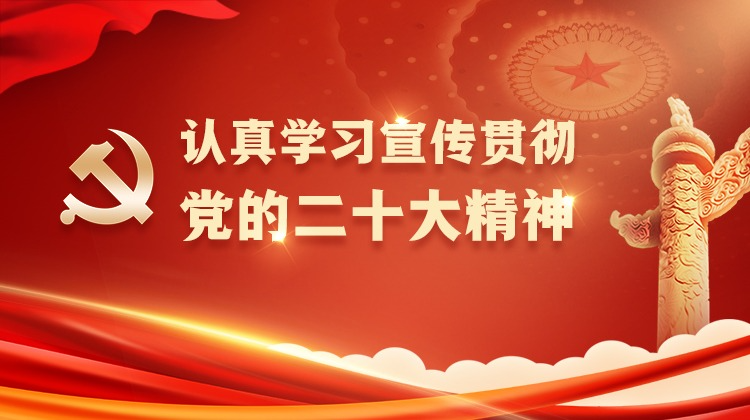A truly inclusive digital future requires collaboration, mutual learning, and a shared vision - where technology is not just for the few, but for all. As developed and emerging economies alike seek to leverage technology for sustainable growth, an increasingly relevant question is: Can China's technology contribute to a more inclusive global digital future?
Expanding Access
China has integrated technology into its national priorities, with tech exports, cross-border collaboration, and digital infrastructure projects playing a growing role in its global engagement.
One of the most notable areas where China is contributing to a more inclusive digital economy is affordable and scalable AI solutions. Many AI models today demand high-end infrastructure and expensive computing power, making them inaccessible to smaller players. However, Chinese AI firms are changing this by investing in open-source platforms, lowering the barriers for businesses and researchers globally.
“If certain countries or regions struggle to build AI infrastructure on their own, we should actively encourage cross-border computing power sharing to support the large-scale adoption of AI,” said Bill Thomas, Chairman and CEO of KPMG International during the just-ended China Development Forum (CDF) 2025 held in Beijing from March 23 to March 24.
Thomas highlighted that China’s rapid advancements in AI have undoubtedly reshaped the global discourse on this technology. Take DeepSeek as an example-it has made open-source models more flexible, enabling easier deployment and implementation of AI while significantly reducing costs.
Also, through companies like Huawei, Alibaba, and Tencent, China has provided 5G networks, cloud computing solutions, and AI-powered applications to markets across Asia, Europe, Africa, and Latin America.
Beyond AI, China's investments in digital finance have reshaped how businesses access capital in regions where traditional banking infrastructure is limited. Platforms like Ant Group’s financial services have enabled SMEs and startups across various markets to leverage fintech solutions, improving financial inclusion on a global scale.
Technology as an Enabler
On top of just providing access, China's technological advancements are also reshaping how businesses and economies function globally.
China’s digital economy model, which integrates large tech platforms, small businesses, and consumer-driven innovation, is drawing attention from policymakers and entrepreneurs worldwide. By fostering a highly interconnected ecosystem, China has demonstrated how technology can enable new business models, drive efficiency, and create economic opportunities.
A recent PwC report highlights how China’s digital infrastructure and trade networks are reshaping global supply chains, offering cost-saving opportunities for multinational enterprises. As the report states, "China’s use of RCEP and the Belt and Road Initiative has not only expanded its business influence but also helped multinational enterprises cut globalization costs.”
Take cross-border e-commerce, for instance. Alibaba’s expansion enables small businesses, including entrepreneurs in emerging markets, to access a global customer base, breaking traditional trade barriers. Meanwhile, China’s advancements in smart logistics and automation are being adapted in Europe and the Middle East, streamlining supply chains and reducing operational costs. When it comes to numbers, Amazon China's overseas warehouses have improved order response times in Southeast Asia by 60%,while Siemens’ Chengdu plant delivers its products to Europe in 72 hours via the China Railway Express.
Bridging Standards
While China's technology has made significant inroads into global markets, standardization and interoperability remain key challenges. Different regulatory frameworks across regions raise questions about how China’s tech ecosystem aligns with global digital governance.
For example, China’s leadership in 5G and its research into 6G highlight the need for greater global alignment on telecommunications standards. It has been actively engaging with the International Telecommunication Union (ITU) and other global standardization bodies to align its 5G and 6G development with international benchmarks.
However, the challenge is not just about technology itself, but how different regulatory environments can harmonize to ensure fair and secure digital cooperation.
“There will be sensitive areas that AI will be deployed. In these sensitivity areas such as national security, all sides should have dialogues and put in guardrails. In civilian use and in investment, all parties should compete fairly, and to learn from each other," said Duane Kuang, Founding Managing Partner from Qiming Venture Partners. “Only by doing this, we can maximize the benefit of AI for all countries involved, and for humankind in general.”
Chinese companies are increasingly engaging in international standardization efforts, participating in global discussions on AI ethics, cybersecurity, and privacy governance. However, the path to deeper regulatory alignment remains complex, requiring continuous dialogue, transparency, and collaboration with global stakeholders.
A Shared Digital Future
China’s contributions to affordable AI, digital finance, and tech infrastructure offer valuable lessons for other nations seeking to accelerate digital transformation. However, achieving true tech equality will require multilateral cooperation, aligned regulatory frameworks, and ongoing commitment to ethical and sustainable innovation.
As technology continues to evolve, one question remains: How can the world collectively shape a digital future where no one is left behind?
Of course, “there is no one-size-fits-all approach—not every country needs to become an AI superpower, nor should that be the expectation. But no matter where one is in the world, everyone should have the opportunity to benefit from the advancements AI brings,” pinpointed Bill Thomas.
(Editor:Wang Su)







 新华报业网
新华报业网














 Android版
Android版
 iPhone版
iPhone版




